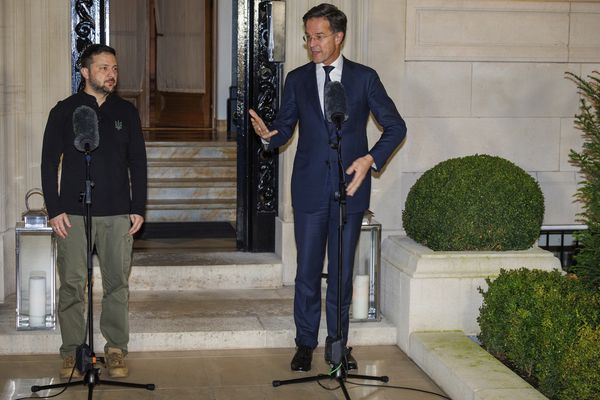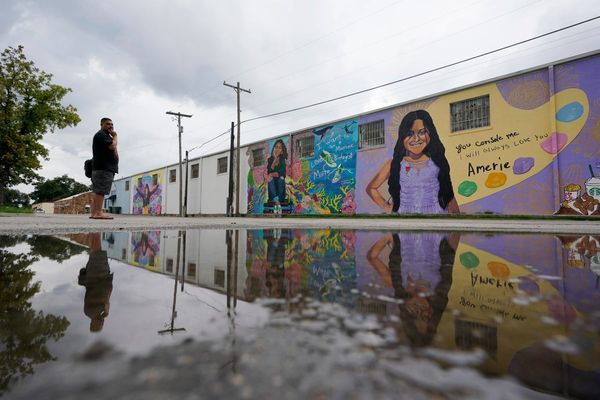BOISE, Idaho -- “Growing green stuff and growing people.”
This is how Jeff Middleton, co-founder of Boise Vertical Farm, describes the partnership between sustainable farming and the rehabilitation of people in the community.
Middleton and Crystal Spencer have witnessed the ways a second chance can affect a person. Though seemingly unrelated, the two Boiseans discovered the benefit of combining that interest with sustainable farming when they co-founded Boise Vertical Farm in 2019, a nonprofit that aims to give individuals in recovery from drugs and alcohol a second chance.
The pair met at St. Luke’s Boise Medical Center, where Spencer was the director of research and Middleton was recovering from substance abuse.
A pharmacist with a business degree who no longer wanted to work around drugs, and a researcher who lost a brother to alcoholism, they sought an answer to the same question: “So what else can we do?”
For Spencer, who has seen family members struggle to get back on their feet after leaving drugs and alcohol behind, that question extends far beyond recovery.
“When we see all this talent out there, and they can’t get reemployed, that’s a loss to the community,” Spencer said.
The idea for the farm started with a visit to Vertical Harvest in Wyoming in 2017. Vertical Harvest employs individuals with physical or intellectual disabilities.
“I got talking with Crystal; we decided to try to give this a chance here,” Middleton said.
In 2019, Middleton and Spencer rented the greenhouse that would become Boise Vertical Farm. It sits at 5810 Castle Drive in Boise on the property of Bill Wade, who leased it to the pair for the cost of utilities. The space includes outdoor garden beds extending from the greenhouse.
The name, Vertical Farm, describes the practice of growing crops in stacked layers. To further optimize plant growth, the farm uses hydroponics, which omits soil and instead uses water-based solutions containing mineral nutrients the plant needs.
The farm grows a wide variety of produce, from mushrooms and microgreens to garden starts, herbs and edible flowers.
The idea to focus their new farm on helping those in recovery from substance abuse came from Middleton’s personal experience with recovery.
“I’ve been in recovery for 12 years,” he said. “But I noticed when I was coming through that there’s a significant gap in between the time that you get clean and the time that your life moves on. If you have a drug charge, if you have a record, it’s impossible to get hired. Nobody, nobody will hire you.”
An opportunity for growth and rehabilitation
Most of the people who end up working with Boise Vertical Farm are convicts who come through the court system. Depending on the judge or whether a convict comes through one of the county’s specialty courts, the offender might be referred to work at Boise Vertical Farm or choose it as one of many alternative sentencing options, according to Middleton.
The amount of time a convict must participate in community service is either decided by the judge or converted at a rate of eight hours per one day of jail. According to Middleton, they’ve seen people anywhere from four hours to 200 hours at a time.
So far this year, 24 of the 30 workers have come through the court system. The other six volunteer their time to help.
For those outside of the court system, Spencer hopes the future of Boise Vertical Farm will allow for a more permanent employment opportunity.
“In time, our goal is to have higher volumes of our operations so that we can truly employ them,” Spencer said. “Right now, we’re just not at that level of income yet.”
Spencer believes that having the farm as an option for someone moving through the court system can provide valuable experience that is not often found in other service tasks.
“A lot of people like this a whole lot better,” Spencer said. “Partially, the environment is peaceful, it’s nice, but they’re actually kind of learning something a little bit more useful. I mean, picking up trash alongside the road, you know, it gets your hours served, but it doesn’t really gain them anything beyond that.”
Boise Vertical Farm supports its workers toward the next step in their careers past the completion of their service requirements. Middleton says the farm has connections with employment services to help people find jobs, as well as connections with Treasure Valley Community College and Boise State University for those who wish to continue their education.
“Our success rate as far as staying clean, and, you know, maintaining and being able to move on is way above 80%, 85%,” Middleton said. “They’ve been able to go out and talk to people and tell them what they’re doing … and they’ve been successful in getting work.”
Some of the farm’s volunteers from the court system have continued volunteering after completing their court-mandated hours, which Spencer says is a result of the support they receive from other volunteers.
“I hear them talking among themselves about, ‘Oh, I’m at this phase of the program,’ or ‘I’m at that phase of the program,’ and you have somebody else who’s here working who’s farther along, they’re like, ‘just stick with it,’ ” Spencer said. “That support aspect, (or) what I’ve witnessed, seems to be a really nice kind of little network that they’ve had come out of it.”
Boise Vertical Farm’s mission sparks community involvement
Middleton said he’s found additional volunteers through people he’s met at farmer’s markets.
“We have people who are relatives, parents and the like who have people in their family who have had problems with drugs and alcohol that want to understand what addiction is all about, want to give back, want to help others,” Middleton said. “A lot of it has to do with a sense of community and wanting to help.”
One of the farm’s volunteers, however, cited an additional motivation for helping Middleton and Spencer with their mission: tomatoes.
“I want you to put this in quotes,” Hal Spencer said, prompting laughter from Middleton as he referenced an old inside joke. “I have not had success growing tomato plants since I’ve lived in Idaho. I want to know why, and Jeff is helping me unravel that mystery.”
After four years of volunteering with the Idaho Suicide Prevention Hotline, Hal Spencer (not related to Crystal Spencer) met Middleton at the Sunday farmer’s market on 36th Street.
“My wife and I went there to check it out for the first time, and that’s where I met Jeff,” Hal Spencer said. “He had a little booth there … and we got into a great conversation. I was in transition looking for another opportunity to help pay it forward, and here I am.”
Hal Spencer began working with Boise Vertical Farm in March and volunteers twice a week.
Just a year after opening, the farm faced an unexpected obstacle in 2020.
“We were almost exclusively selling to restaurants, so (COVID) pulled the rug right out from under us,” Middleton said.
The farm has two other partner grower locations in Boise: Diamond V and Be Local Farms, the latter of which is an aquaponics farm where fish waste is used to grow lettuce and other leafy greens.
“We found that we were very limited in our options for growing-space expansion, so we formed a partnership with these two for-profit growers (who) had available greenhouse and outdoor space,” Middleton said by email. “There isn’t much profit in small-business farming, so our partner farmers essentially donate their efforts and time to Boise Vertical Farm. They have been very generous to us and believe in our mission.”
Boise Vertical Farm pays its partners a percentage of the proceeds from what it grows on their farms.
“The people that come in through the program will work here or they can work there as well, depending on where they live and what they enjoy doing,” Middleton said.
What makes Boise Vertical Farm sustainable?
The hydroponics farm uses only 10% of the water that surface gardening or farming does, which saves water and land, according to Middleton.
Boise Vertical Farm’s products are available in local farmer’s markets, including the Meridian Main Street Market on Saturdays and the 36th Street Sunday Market in Boise. The Boise Co-op sells Boise Vertical Farm baskets. Customers can also buy produce through the farm’s website.
“All that money, all the money that goes from those sales comes back into the system and is used to expand and help more people,” Middleton said.
It’s also possible that you may have come across the work of volunteers at Boise Vertical Farm without buying from it directly. The farm sells its produce to several restaurants and caterers including Vintage ‘61 Wine Bar & Kitchen in Meridian, The Lively in Boise and Hudson Bakery Co. in Kuna.
____







